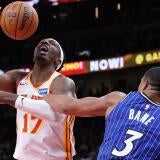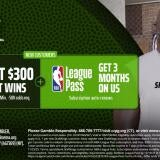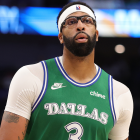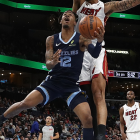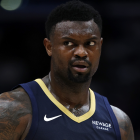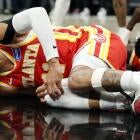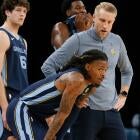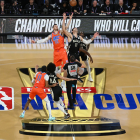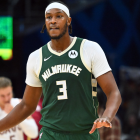Why Ja Morant's trade value is seemingly so low and the team to watch as rumors swirl
Multiple reports have indicated that if Morant becomes available, his market could be tepid
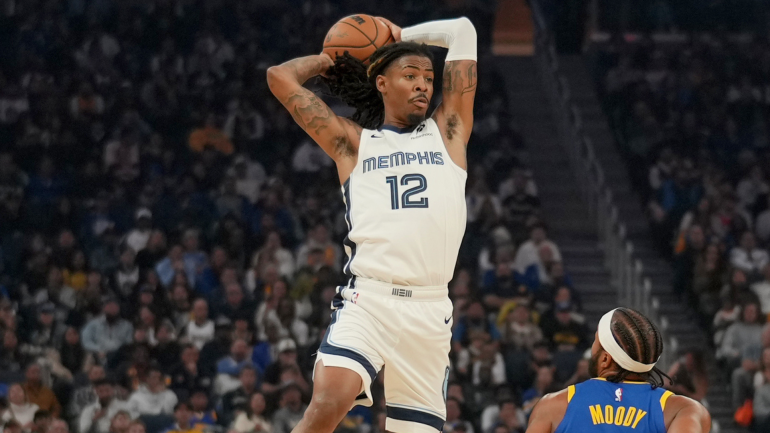
The Memphis Grizzlies may not yet be ready to trade Ja Morant, but the NBA, to this point, doesn't seem especially enthusiastic about the idea that they soon might. On Monday's episode of the Hoop Collective Podcast, ESPN's Tim MacMahon asked if there would be a robust trade market for Morant, and Tim Bontemps indicated that he did not believe there would be. On Tuesday, ESPN's Marc Spears chimed in as well and echoed those sentiments.
"I talked to a couple of GMs who told me that last summer, every player on the Grizzlies were available for trade," Spears said. "That includes Ja and Jaren [Jackson]. Certainly curious to me that the Orlando Magic were able to make a trade with the Grizzlies, they got Desmond Bane, which it made it apparent that they could have gotten Ja Morant and decided not to.
"Four of the execs said they really have no interest in trading for Morant. One said it was because of a combo of contract and off-the-court issues. Another suggested that if Ja is traded, it'll probably be a problem star for a problem star. A couple of them also said that you need the right coaching staff to have such a mercurial star as him. And I asked one current NBA coach if he would like to coach Ja Morant, and he said 'I'm not sure I'd want to.'"
Given Morant's credentials, it's worth exploring why exactly so few teams seem interested in trading for him. The explanations Spears were offered are part of the equation, obviously. Morant is set to make max money not only this season, but for the next two afterward. His off-court issues speak for themselves. He's been suspended for a total of 34 games, and his absences haven't been limited to suspensions.
Morant misses games due to injury frequently. For his career, he's missed around 35% of all regular-season Grizzlies games. Those injuries have added up. There is pretty meaningful statistical evidence that Morant is declining, especially in the areas most important for his playing style. He's not getting to the rim as much. He's not getting to the line as much. As a result, he isn't scoring as much.
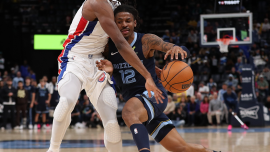
Again, these explanations are all valid parts of a greater whole. But there's another factor holding Morant's trade value down that's getting lost in the shuffle, one that would affect him regardless of his recent controversies. It is simply hard to trade small, ball-dominant guards right now.
Take Trae Young as a similar example. The Atlanta Hawks traded Dejounte Murray in the 2024 offseason, but according to MacMahon on another episode of the Hoop Collective, he wasn't the only guard they considered moving. "The simple fact of the matter is that if there was a real market for Trae Young, he'd be somewhere else right now," he said at the time. He's far from the only example of this phenomenon.
When James Harden was traded early in the 2023-24 season, he netted Philadelphia one very good unprotected first-round pick from the Clippers, one very bad "least favorable of three teams" first-round pick from the Thunder and a protected first-round swap from the Clippers. When Damian Lillard got traded to the Milwaukee Bucks, he netted two unprotected picks, one unprotected swap, and Jrue Holiday, who would himself later be traded for picks. Between them, they'd been selected to 19 All-Star Games at the time of those trades. Mikal Bridges has never made one, and he alone netted five first-round picks along with one first-round swap. Rudy Gobert is obviously a bit more accomplished than that, but he's far less accomplished than Harden and Lillard. He, too, got five first-round picks and a swap if you count Walker Kessler, who hadn't played yet at the time.
Every trade is unique. This isn't the stock market, where value is fixed and you can click "trade" when a player's price hits a low enough level. Age, health, contract, personality and circumstances for the teams involved all play into what someone gets on the market. But recent history suggests that high-usage point guards get less than you'd think while wings almost always get more (we haven't even mentioned Paul George yet) and bigs can under the right circumstances as well. So why is that?
Because, where most point guards are concerned, almost all of their value is derived from what they do when they have the ball in their hands. Their size and offensive workload limit what the can do defensively. While they may be capable shooters, they are very often better off the dribble than they are off the catch, making them less valuable off-ball players. They likely haven't done much cutting or screening in their careers because of how high their usage has been. There's nothing wrong with these kinds of players. It's just that most of the best teams already have them, and when they don't, it's because they have bigger players already running their offense. And usually, it's the best teams that want to pay substantial prices for All-Stars on the trade market.
Take the Knicks here, as they traded all of those picks for Bridges. Why would they want Morant when they already have Jalen Brunson? Morant's poor shooting would limit his spacing. His small stature would make it harder for the Knicks to defend. Roll down the list of contenders. The Thunder have Shai Gilgeous-Alexander. The Cavaliers have Donovan Mitchell and Darius Garland. The 76ers have Tyrese Maxey, VJ Edgecombe, Jared McCain and Quentin Grimes fighting for touches. The Lakers have Luka Dončić, LeBron James and Austin Reaves. The Nuggets have Jamal Murray and run their offense through a center in Nikola Jokić. Morant doesn't make sense for teams like that. Even teams that need guards don't really need a Morant-esque guard.
Think about Houston. Could the Rockets make a big swing for a guard this season? Yes. But Kevin Durant is already their half-court shotmaker, Alperen Sengun handles the ball more than most bigs and Amen Thompson is a younger, healthier and more versatile version of the "elite athlete that can't really shoot but puts a ton of pressure on the rim" archetype. Morant doesn't fit there either.
The basketball world panicked when Damian Lillard tore his Achilles last spring thinking the Bucks would be dead in the water without a high-level guard scorer. It turns out, they've been just fine operating on the cheap. Ryan Rollins is averaging around 83% of Morant's points at around 10% of the salary. Cole Anthony hasn't been far off and he's making the minimum. You can find guard scoring relatively cheaply on the free agent market. Supply outpaces demand, and it allows teams to be a bit pickier stylistically. The Bucks need shooters around Giannis Antetokounmpo more than anything, so Morant obviously doesn't qualify.
Spears brought up the Magic in his reporting. They probably could have traded for Morant if they'd offered the Grizzlies what they gave up for Desmond Bane. But think of why the Magic wanted Bane, specifically. They've been at the bottom of the league in terms of 3-point shooting for years. They have a defense-first culture that they didn't want to mess with. And they needed someone who could boost their offense without taking the ball out of the hands of their young franchise players, Paolo Banchero and Franz Wagner. Bane checks all three boxes. Morant checks none of them. Even if Morant is the more acclaimed player of the two, Bane is the one that's far easier to fit onto an existing roster. And that's the key to all of this. Ja Morant isn't the sort of player that can or should be plopped down onto just any roster. He only makes sense somewhere that is willing to build its entire program around his strengths and weaknesses.
And that brings us to the team that gets thrown around more often than any other in fake trade talks: Sacramento. While the Sacramento Bee's Jason Anderson reported that the Kings haven't yet engaged the Grizzlies in trade talks, they should be expected to monitor the situation as it progresses.
On the surface, the Kings are a questionable fit. They already have a bunch of high-usage ball-handlers that don't really shoot like Russell Westbrook, DeMar DeRozan and Dennis Schröder. But Sacramento's interest, should it arise, would be bigger picture. Westbrook is on a non-guaranteed minimum deal, DeRozan is only partially guaranteed for next season, and Schröder is only making mid-level money and has been a backup for much of his career. They aren't exactly standing in anyone's way if changes need to be made.
When the Kings broke their playoff drought in 2023, they did so by pairing Domantas Sabonis with one of the NBA's speediest point guards in De'Aaron Fox. Morant could replicate parts of that formula. He could be the primary ball-handler for the Kings. There seemingly aren't that many other teams out there eager to replace their current primary ball-handler with Morant, and the only way for Morant to justify his max salary, regardless of injuries or controversies, is to be someone's primary ball-handler and run a high-level offense. He's not going to do it on defense and he's not going to do it as a shooter. Hence, teams like the Kings are going to make up the lion's share of the market unless a contender decides to roll the dice.
Trade value is a tricky concept. How "good" a player is only accounts for a small part of it. The smartest teams think about possible acquisitions in a more nuanced way. It's about the whole, not the value of the individual parts. The best version of Morant was so good that many teams would eagerly make him their focal point and build the whole to his strengths. The version of him we're seeing now doesn't seem worth it. If Morant is merely going to be a good on-ball scorer rather than an elite driver whose gravity generates consistently easy shots for everyone else, his fit on most existing rosters is going to be so iffy that the Grizzlies probably would struggle to find a palatable trade.
That, more than even the equity he's built up in Memphis, is probably the biggest reason a trade is unlikely for the time being. The Grizzlies have already built their whole organization around Morant. The theoretical best version of him is more valuable to them than the real one we're seeing on the court would be for the majority of teams. A trade makes sense when a player's trade value to the league exceeds his actual value to his current team. Considering how low Morant's trade value has seemingly sunk, the Grizzlies probably don't think that's close to the case yet, so things are probably going to have to get worse before a trade becomes realistic.


